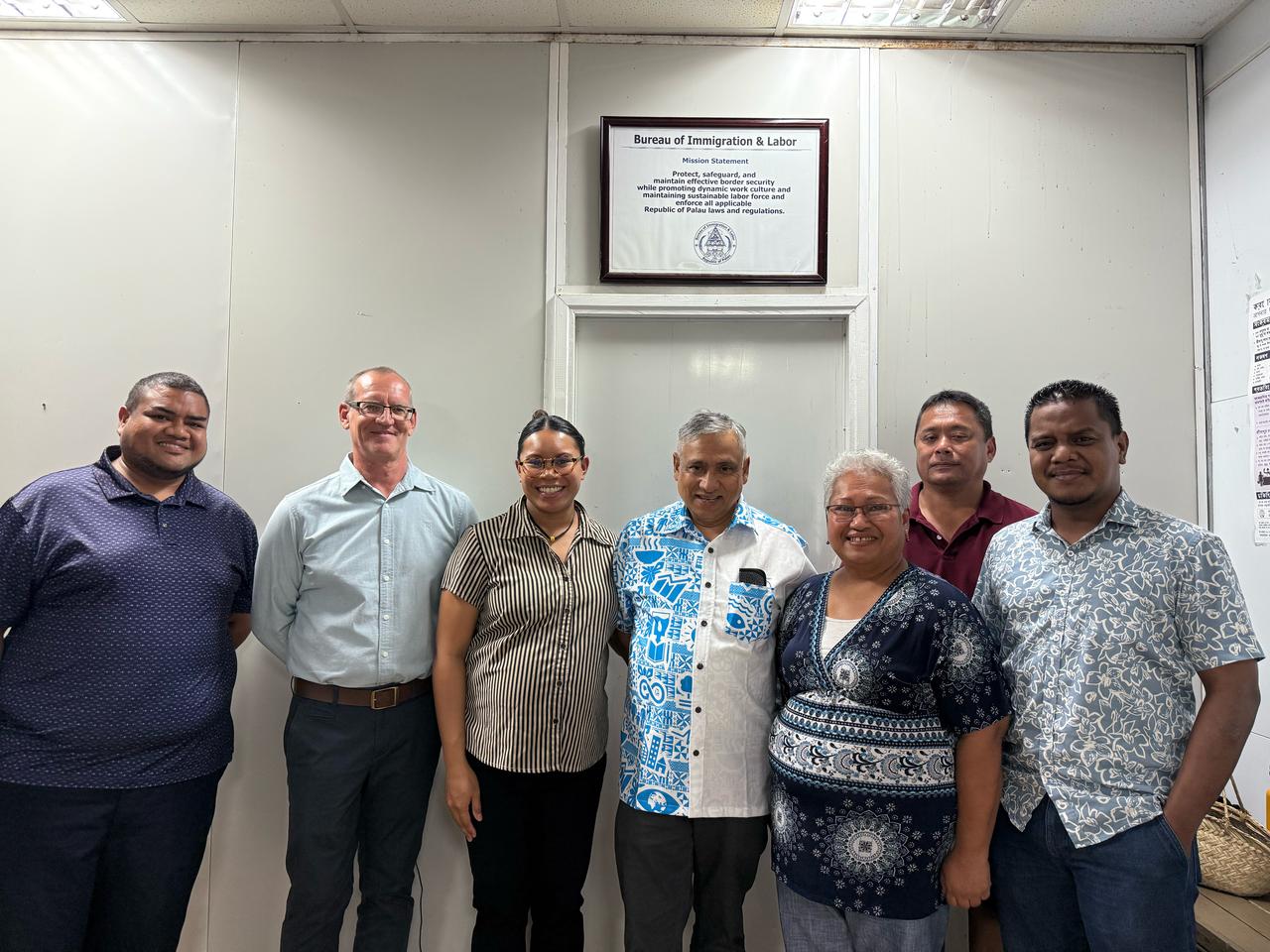PalauPay
How Palau is digitally transforming government payments

How Palau is digitally transforming government payments

In the heart of the Pacific, the Republic of Palau is redefining how governments serve their citizens. Faced with the inefficiencies of manual, cash-based payments, Palau embarked on a journey to digitise its financial interactions with a centralised, cloud-based payment platform.
Developed in partnership with the United Nations Office for Project Services (UNOPS) and Ackama, the new system is a testament to the power of collaboration and human-centred design. This is not just a story about technology; it’s about transforming the day-to-day experiences of citizens and government workers alike.
For years, citizens in Palau endured a cumbersome, multi-step process to pay for government services. Whether renewing a vehicle registration or applying for a business licence, payments meant standing in line at the National Treasury, with physical receipts as the only proof of transaction. Agencies had no visibility into payment status, resulting in lost time, frustration, and administrative inefficiency.
“We used to just tell customers, ‘go to Treasury’, we didn’t know if they paid or not until they came back.” Conrad Ellecher, Director of Information System Support Services, Ministry of Finance
Palau needed a solution that was simple, secure, and adaptable. A digital payment system that fit within its government workflows and worked for both citizens and government employees.
The Ministry of Finance and agency staff played a central role in designing the solution. Through in-depth consultations, we mapped payment journeys, identified pain points, and built a shared vision of success.
The result was a Minimum Viable Product (MVP) focused on providing essential functionality while remaining agile for future growth. Built using Ruby on Rails and hosted on AWS, the platform effortlessly integrates with Authorize.Net for secure payments.

The key principles of our approach included:
→ Empower staff to initiate and manage payments on behalf of citizens
→ Simplify the process using secure, email-based payment links
→ Ensure trust with industry standard security and audit trails
→ Keep it human-centred by aligning with existing workflows.
PalauPay launched as a pilot across four government agencies:
→ Environmental Quality and Protection Board
→ Palau National Scholarship Board
→ Office of Labour Compliance
→ Bureau of Public Safety
Training sessions were delivered in-person and remotely, supported by a hands on, active participation approach. While some initial apprehension was expected, agency staff embraced the system’s simplicity and reliability.
“We like that it’s fast and we don’t have to send people away anymore.” Conrad Ellecher, Director of Information System Support Services, Ministry of Finance

Staff demonstrated confidence, and the platform’s readiness for broader adoption was clear. With PalauPay, agency staff can now generate payment checkouts during service interactions.
Citizens receive a secure payment link via email, complete the transaction online, and receive instant confirmation. No logins or unnecessary steps, just a process that works. For government staff, real-time payment visibility has eliminated the guesswork. The intuitive interface allows even non-technical users quickly gain confidence.
As with any government associated platform, and one that is financial in nature, PalauPay required robust security protocols to protect both government and citizen data. Ackama implemented:
→ AES-256 encryption for all data in transit
→ Multi-factor authentication for government users
→ No sensitive financial data stored on government servers
→ Comprehensive audit trails for complete transaction transparency.
The groundwork has been laid for expansion. Ministry of Finance staff are now equipped to onboard more agencies, and discussions are underway to extend the platform’s capabilities.
PalauPay has the potential to become a cornerstone of Palau’s digital future. With the system firmly in place, the next phase will focus on expanding access and enhancing functionality. Areas of next focus may include public awareness campaigns to drive citizen adoption, agency expansion for wider service coverage, treasury system integration for financial oversight and more.
The Smart Islands initiative has sparked something far beyond technology: a movement towards better, more accessible government services.
Squareweave is now Ackama.

We've merged with New Zealand company Ackama!
We're excited to be working with our Kiwi colleagues to deliver ambitious, purposeful digital products on both sides of the Tasman.
Common Code is now part of Ackama.

We’re now part of Ackama, delivering purposeful technology across the Asia-Pacific.
Together, we’re creating impact across energy, government, international development, and beyond. Delivering pragmatic, innovative solutions where they matter most.